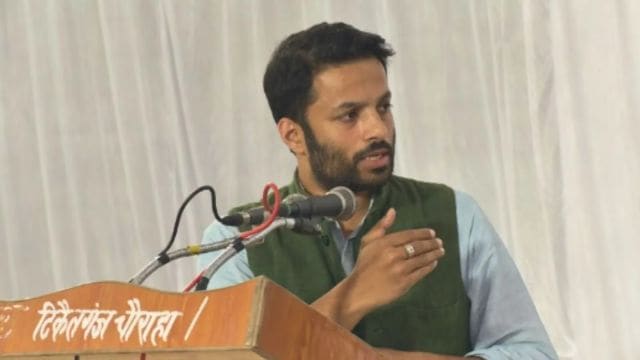Asking why the Haryana Special Investigation Team (SIT) was “misdirecting itself” in the case related to Ashoka University Professor Ali Khan Mahmudabad — who was arrested in May over his social media posts on Operation Sindoor — the Supreme Court on Wednesday said the SIT was only supposed to “examine the contents of the posts”.
The bench of Justices Surya Kant and Joymalya Bagchi also questioned the seizure of Mahmudabad’s cellphone and other electronic devices, and asked the SIT to confine itself to the two FIRs filed against him, see if there was an offence, and submit its report in four weeks.

The court also said that it had only restrained Mahmudabad from writing on topics that were sub-judice, and he was free to write or express his opinion on other issues.
Story continues below this ad
“Though it may not be expedient or desirable for us to comment on the manner in which the SIT has proceeded, we, however, deem to remind it of the mandate contained in our order dated May 28 and consequently direct the SIT to conclude its investigation with reference to the contents of the two social media posts as early as possible, but not later than four weeks. Since the petitioner has already joined the investigation and handed over his personal gadgets, it seems to us that it may not be necessary to summon the petitioner again for joining the investigation,” the court said in its order.
Mahmudabad was arrested on May 18 following two FIRs over his posts on Operation Sindoor which allegedly disparaged women officers in the Indian Armed Forces. On May 21, the Supreme Court granted him interim bail but declined to stay the investigation in connection with the FIRs. Observing that Mahmudabad’s remarks amounted to “dog whistling”, the court had directed the constitution of an SIT to probe the matter. On May 28, the court directed “that the investigation of the SIT shall be confined to the contents of the two FIRs which are subject-matter of these proceedings”.
Appearing for Mahmudabad on Wednesday, Senior Advocate Kapil Sibal said the SIT had seized his devices and questioned him about foreign trips undertaken over the last decade. Saying that the academician was summoned four times in connection with the probe, Sibal said there cannot be a “roving inquiry”. He said the SC’s earlier order required the SIT to only probe the contents of the two social media posts over which Mahmudabad was arrested.
“We are asking why the SIT is, on the face of it, misdirecting itself. They were supposed to examine the contents of the posts,” Justice Kant said.
Story continues below this ad
Appearing for the Haryana government, Additional Solicitor General S V Raju said the investigation was the SIT’s prerogative and the accused couldn’t dictate terms of the probe.
The court, however, said that Mahmudabad need not be summoned again. “You don’t require him. You require a dictionary,” Justice Kant said.
“All you had to do was examine the posts, whether the expression, words or terminology constitute any offences alleged in the FIR… For that you do not need him… or his gadgets. We want to know for what purposes these gadgets were seized,” the bench said.
Justice Kant said if the counsel was unable to answer the question, the court would call the head of the SIT and ask about the line of investigation.
Story continues below this ad
Raju argued that the devices had to be examined to see if there was more than just social media posts.
“We feel that the SIT has misdirected itself, despite the mandate given in the May 28 order,” the bench reiterated.
“There are two social media posts and two FIRs. The question is very simple. Which line and which word or expression constitutes an offence. This is what the SIT, being an expert body, has to find out,” the court said.
The bench said that although it did not want to interfere or intervene with the investigation, it questioned the seizure of cellphones and other electronic gadgets.
Story continues below this ad
“It is open for the SIT to say that the contents of the FIRs don’t disclose any offence, this case can be closed. It can always say that during the course of investigation, they have come across certain incriminating materials, which constitute separate offences and the law will take its own course,” the bench said.









